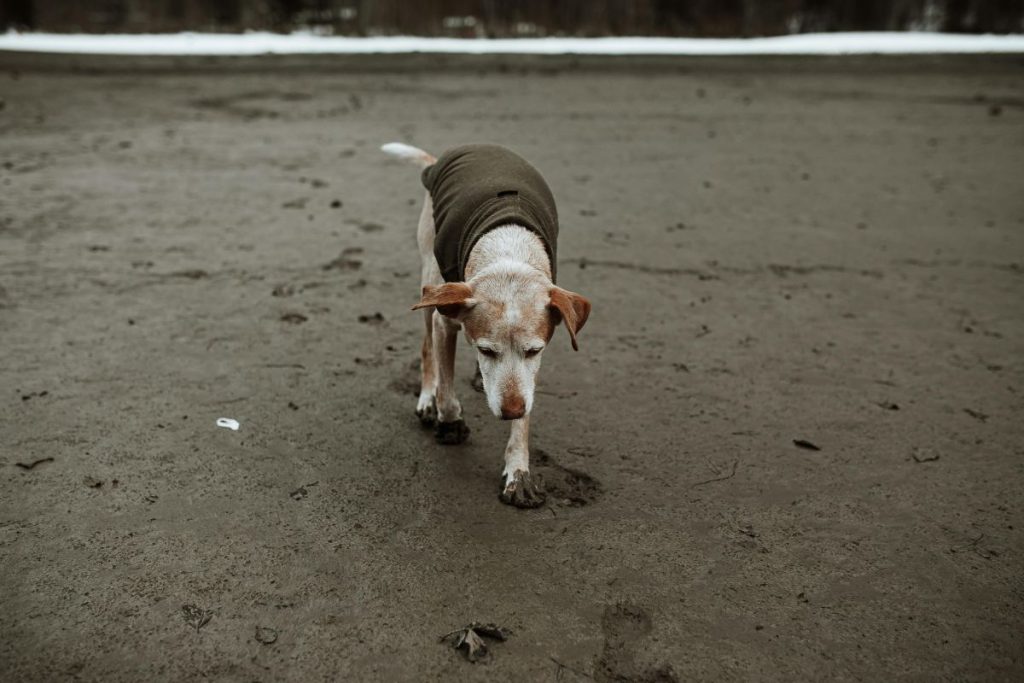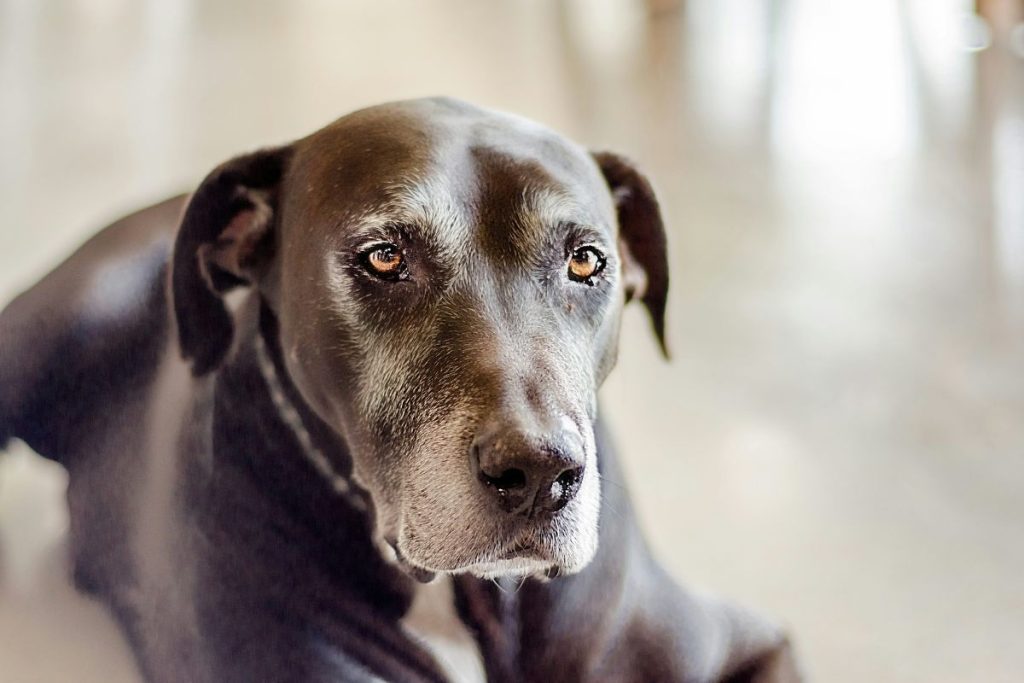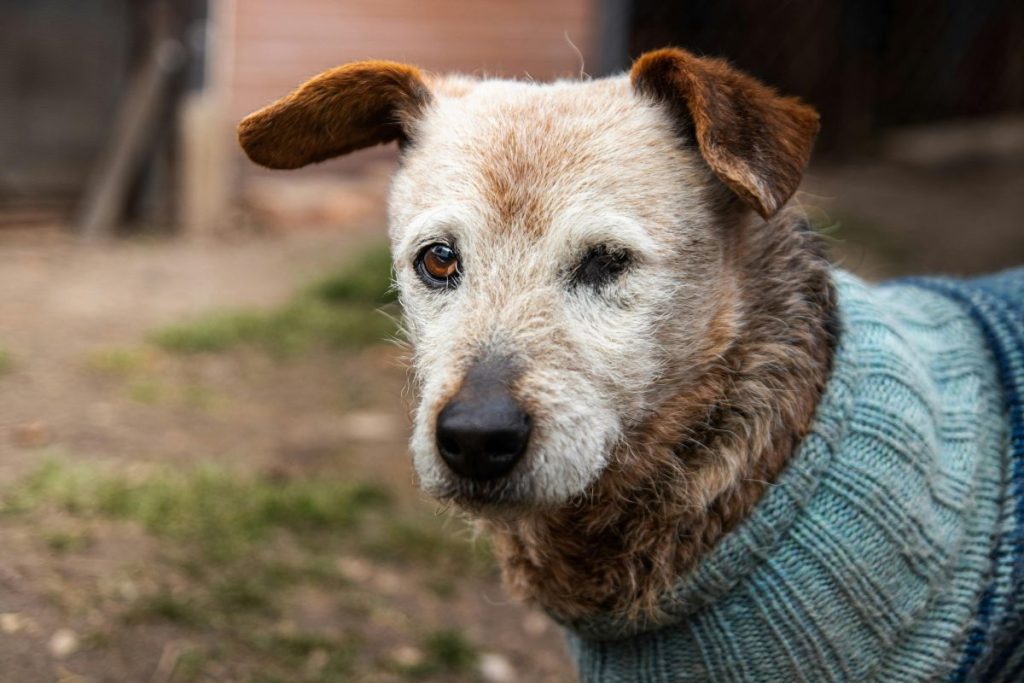Saying goodbye to a beloved dog is never easy. As our canine companions age, it’s natural to worry about their health and well-being and to wonder how we’ll know when it’s time to let go. While this is a difficult topic, understanding the signs that your dog may be nearing the end of their life can help you make informed decisions and provide the best possible care during their final days.
It’s important to remember that every dog is unique and will age at their own pace. The following signs are simply indicators that your senior dog may be entering their twilight years. If you notice any of these changes, it’s crucial to consult with your veterinarian for guidance and support. Make sure to visit https://midwayroadanimalclinic.com/end-of-life-and-euthanasia/ for more information.
Decreased Mobility and Difficulty Navigating Stairs
One of the most noticeable signs of ageing in dogs is decreased mobility. Just like humans, dogs can experience arthritis and joint pain as they get older. This can manifest in a variety of ways, such as:

- Struggling with stairs: Your senior dog may begin to hesitate or refuse to climb stairs, or they may take them one step at a time. Imagine trying to climb a staircase with stiff and achy knees – it’s uncomfortable and requires extra effort.
- Difficulty getting into the car: Jumping into the car, which was once effortless, may become a challenge. You might notice your dog needing assistance or making multiple attempts to get in.
- Stiffness and limping: Your dog may appear stiff, especially after resting, or they may develop a limp. This could be due to arthritis or other age-related conditions affecting their joints.
- Trouble standing up: Getting up from a lying down position may become more difficult and take longer. You might notice your senior dog wobbling or needing to push off with their front legs to gain momentum.
These changes in mobility can significantly impact your dog’s quality of life, making it difficult for them to enjoy walks, play, and other activities they once loved.
Loss of Interest in Walks and Favourite Games
A decline in your dog’s usual enthusiasm for walks or games is another potential sign that they’re slowing down. While all dogs need rest, a sudden or gradual disinterest in activities they once enjoyed could indicate underlying health issues or simply a decrease in energy levels associated with ageing.

Think of it like this: if you were once an avid runner but now find yourself getting tired easily, you might naturally start to prefer shorter walks or less strenuous activities. Similarly, your senior dog may no longer have the stamina or desire for long walks or vigorous play sessions.
Increased Accidents and Incontinence in the House
As dogs age, they may lose control of their bladder and bowels, leading to accidents in the house. This can be due to several factors, including:
- Weakening muscles: The muscles that control urination and defecation can weaken with age, making it difficult for your dog to hold it.
- Cognitive decline: Senior dogs may experience cognitive decline, similar to dementia in humans, which can affect their awareness of the need to go outside.
- Underlying medical conditions: Incontinence can also be a symptom of underlying health problems, such as kidney disease or diabetes.
Significant Changes in Appetite and Eating Habits
Changes in appetite and eating habits are common in senior dogs. You might observe:
- Loss of appetite: Your dog may show less interest in food, even their favourite treats. This can be due to a variety of factors, including changes in their sense of smell and taste, dental problems, or underlying health issues.
- Difficulty eating or drinking: Chewing and swallowing can become more challenging for senior dogs, especially if they have dental disease or pain in their jaw. You might notice them dropping food, eating more slowly, or struggling to pick up kibble.
- Weight loss: A significant decrease in weight, even if your dog is still eating, can be a cause for concern. This could indicate an underlying medical condition or simply a reduced ability to absorb nutrients from their food.
If you notice any of these changes, it’s important to talk to your vet to determine the cause and discuss ways to ensure your dog is getting the nutrition they need.
Sleeping More Than Usual and Exhibiting Lethargy

Senior dogs tend to sleep more than their younger counterparts. However, excessive sleepiness or lethargy can also be a sign of underlying health problems.
Imagine how you feel when you’re unwell – you likely want to rest more and conserve your energy. Similarly, your senior dog may be sleeping more because they’re not feeling well or because their body is simply slowing down.
Withdrawal from Family and Loss of Interest in Surroundings
As dogs age, they may become less interested in their surroundings and less engaged with their family. This can be due to a combination of factors, including:
- Cognitive decline: Senior dogs may experience cognitive decline, which can affect their memory, awareness, and social interaction.
- Sensory decline: Loss of vision or hearing can make it difficult for your dog to interact with their environment and the people around them.
- Pain or discomfort: If your dog is experiencing pain or discomfort, they may withdraw and become less social as a way of coping.
If your once-sociable dog starts to spend more time alone or seems less interested in interacting with you, it’s important to consult your vet to rule out any medical causes and discuss ways to support your dog’s emotional well-being.
Deteriorating Coat and Skin Condition

Changes in your dog’s coat and skin can also be a sign of ageing or underlying health issues. You might notice:
- Dry, flaky skin: Just like humans, dogs can experience dry skin as they age. This can be due to a decrease in oil production or underlying health conditions.
- Matted fur: Senior dogs may have difficulty grooming themselves, leading to matted fur. This can be uncomfortable and even painful, especially if the mats are tight or close to the skin.
- Pressure sores: Dogs who spend a lot of time lying down can develop pressure sores, especially on bony prominences like their elbows and hips. These sores can be painful and can become infected if not treated.
Changes in Breathing Patterns and Increased Coughing
As dogs age, their respiratory system can become less efficient. This can lead to changes in breathing patterns, such as:
- Laboured breathing: Your dog may breathe more heavily or rapidly, even when resting.
- Coughing or wheezing: These can be signs of respiratory infections, heart disease, or other health problems.
If you notice any changes in your dog’s breathing, it’s crucial to consult your vet to determine the cause and discuss treatment options.
Recognising Cognitive Decline and Confusion
Cognitive decline in dogs is similar to dementia in humans. It can cause a variety of symptoms, including:
- Confusion or disorientation: Your dog may seem lost or confused in familiar surroundings, or they may have difficulty remembering learned behaviours.
- Changes in sleep-wake cycles: They may sleep more during the day and be more restless at night.
- Changes in social interaction: They may become more withdrawn or clingy, or they may seem less interested in interacting with family members.
Loss of Senses and Decreased Vision

Ageing can also affect your dog’s senses, particularly their vision and hearing.
- Decreased vision: Your dog may bump into furniture, have difficulty navigating in low light, or seem startled more easily. Cataracts, a clouding of the lens of the eye, are also common in older dogs.
- Loss of hearing: Your dog may not respond to your commands or may seem less aware of their surroundings.
While some age-related sensory decline is normal, it’s important to rule out any underlying medical conditions that could be contributing to these changes.
Supporting Your Senior Dog and Making Difficult Decisions
Witnessing your beloved dog’s age can be an emotional experience. It’s important to remember that you are not alone. Your veterinarian can be a valuable resource during this time, providing guidance on managing your dog’s age-related changes and ensuring they remain comfortable and happy. As your dog’s condition progresses, you may eventually need to consider the difficult decision of euthanasia. This is a deeply personal choice, and your veterinarian can help you understand the process, discuss your options, and provide support during this challenging time.
Images courtesy of unsplash.com and pexels.com











